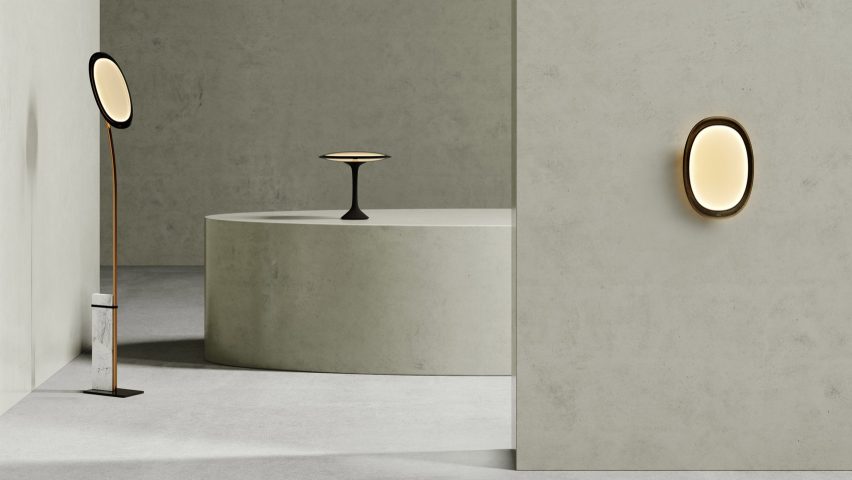
Potemine designs multi-use Alis lamp with "one light fits all" system
Italian startup Potemine aims to reduce the number of devices needed in consumers' environments with its wireless Alis light, which can be attached to different bases for specific placements.
In addition to being used on its own, the lamp can be magnetically attached onto one of three bases to turn it into a table or floor lamp, or a wall-mounted light, rather than owning three separate lighting products.
Each base also doubles as a charger for the lamp head when connected to a power supply.
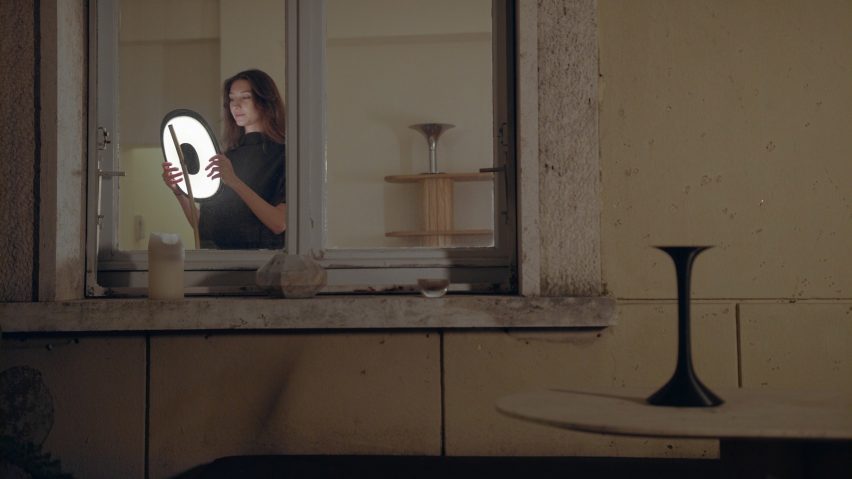
The device uses the Internet of Things (IOT) to connect multiple devices together and enable a single control point for a group of lights.
As Potemine told Dezeen, this technology was developed to eliminate any wirings between the lights, as well as additional fixed switches on walls.
Advanced accelerometers in the lamps also enable users to control them with subtle movements. For example, tilting the device to the left decreases the brightness and eventually switches the light off, while tilting to the right makes it brighter.
Forwards and backwards movements can be used to control the brightness of a group of lights connected through the Cloud.
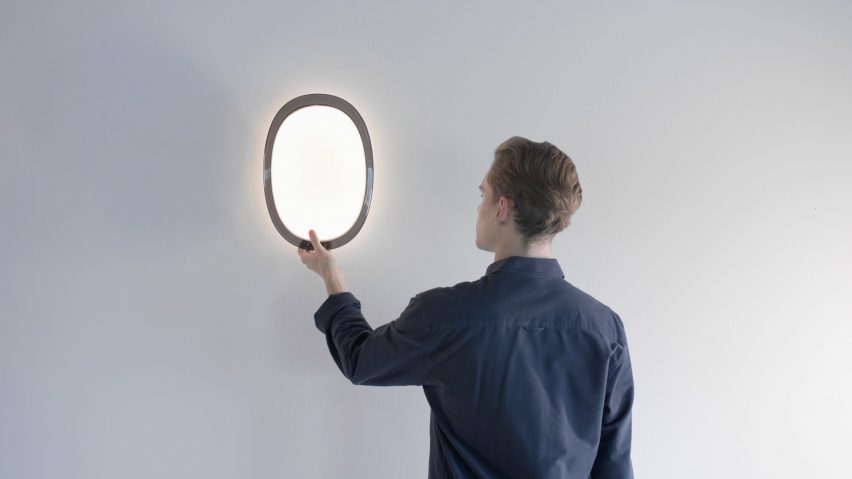
"Alis introduces a completely new way of living with light, thanks to the IOT technology and its intuitive design the user is able to create flexible lighting systems in places where it wasn't possible before," said the studio.
"It's a 'one light fits all' system," it continued. "A series of accessories and a patented mechanism turns Alis into a wall lamp, a floor lamp or a desk lamp, reducing the number of devices in your environment."
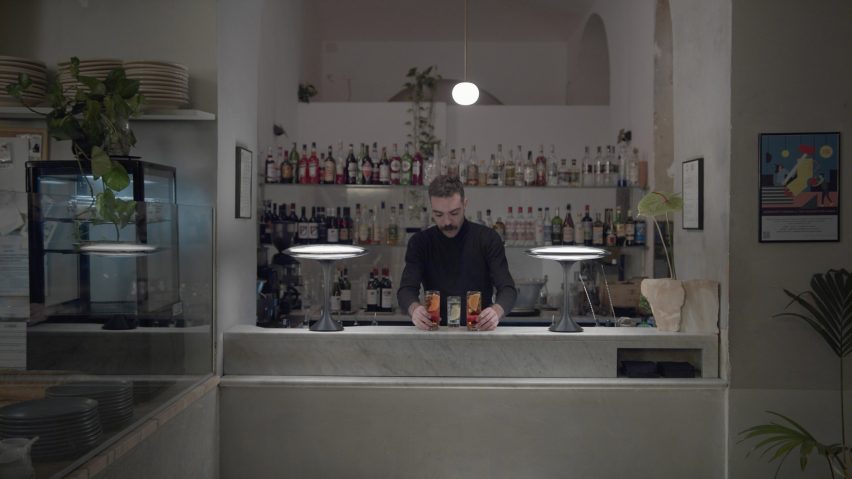
Each of the portable lights has a wifi module that sends data to the Cloud and processes it before sending the information back.
As a result, the studio explained, if a user has four lamps connected and one fails, then the remaining lamps will still be able to work and send information between one another.
The product can also be controlled by smartphone via the Alis app, and is compatible with smart home devices such as Amazon's Alexa, enabling users to turn the lights on and off with voice commands.
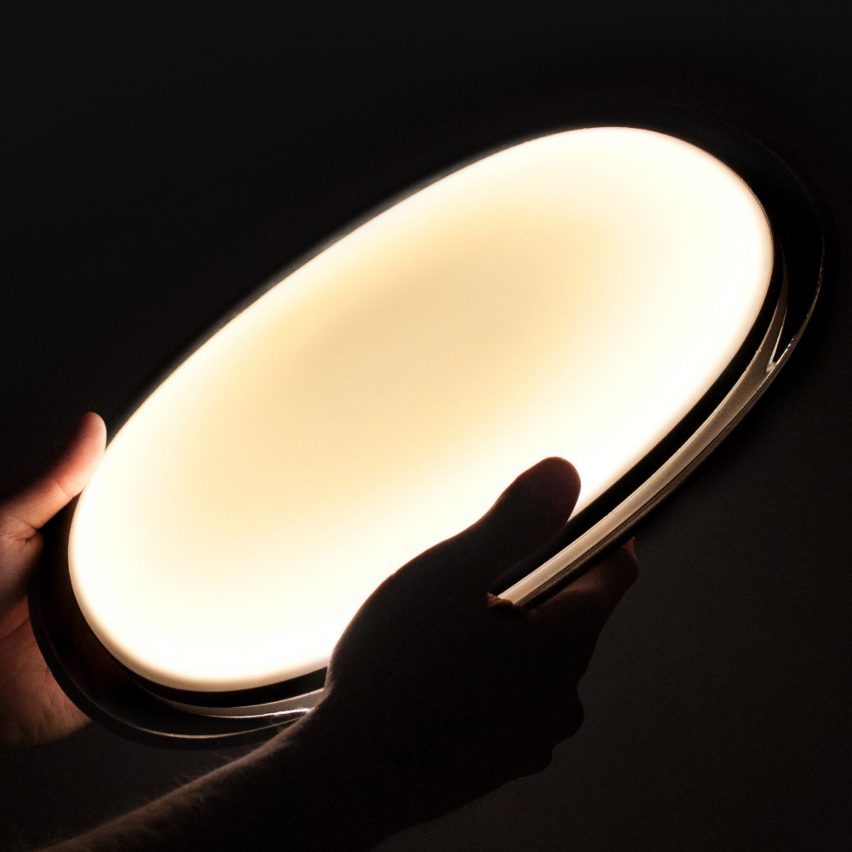
"Alis comes from the art of sculpting," said Potemine. "The design team, inspired by [Constantin] Brancusi and [Lino] Sabattini, created a symmetric balance between hundred-year-old shapes and a breakthrough technology."
"Alis is the perfect combination between great design and awesome technology," it added. "It is conceived for people who love unique silhouettes but want more from their lamps, and for those who love technologies but wish to have more sophisticated looking products."
The Alis light is shortlisted in the lighting design category of this year's Dezeen Awards.
Other projects shortlisted in this category include an autonomous, ambient solar light by Marjan van Aubel Studio, and a laser-cut metal lamp made up of simple geometric forms.

